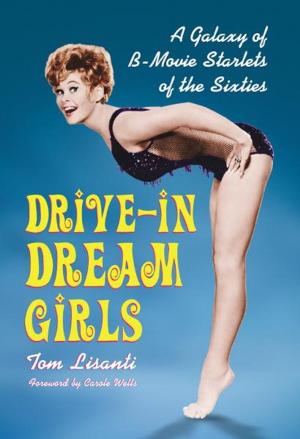Marks of Toil
Work and Disfigurement in Literature, Film and Philosophy
Nonfiction, Entertainment, Performing Arts, Film, Fiction & Literature, Literary Theory & Criticism| Author: | Justin Vicari | ISBN: | 9781476617046 |
| Publisher: | McFarland & Company, Inc., Publishers | Publication: | September 17, 2014 |
| Imprint: | Language: | English |
| Author: | Justin Vicari |
| ISBN: | 9781476617046 |
| Publisher: | McFarland & Company, Inc., Publishers |
| Publication: | September 17, 2014 |
| Imprint: | |
| Language: | English |
Are people nothing more than their physical capital—what their bodies can produce and provide? This philosophical treatise examines the idea of mutational bodies as it has appeared in fiction and cinema since the industrial era, theorizing that capitalism and other modern collective systems require transformations both literal and figurative for the individual to survive. Infringements on individualism include both the concept of eternity, which asks that we resign ourselves to life and death as endless waiting, and the Hegelian dialectic itself, which has been reversed by neoconservative thinkers into a new conviction that the rich are oppressed by the poor. In response, this work suggests the inauguration of a post-dialectic “ethical materialism.” Subjects considered include the films of Charlie Kaufman and Stan Brakhage, the fiction of Philip Roth and Don DeLillo, the feminist art criticism of Lucy Lippard, and the meanings of virtuality and the internet.
Are people nothing more than their physical capital—what their bodies can produce and provide? This philosophical treatise examines the idea of mutational bodies as it has appeared in fiction and cinema since the industrial era, theorizing that capitalism and other modern collective systems require transformations both literal and figurative for the individual to survive. Infringements on individualism include both the concept of eternity, which asks that we resign ourselves to life and death as endless waiting, and the Hegelian dialectic itself, which has been reversed by neoconservative thinkers into a new conviction that the rich are oppressed by the poor. In response, this work suggests the inauguration of a post-dialectic “ethical materialism.” Subjects considered include the films of Charlie Kaufman and Stan Brakhage, the fiction of Philip Roth and Don DeLillo, the feminist art criticism of Lucy Lippard, and the meanings of virtuality and the internet.















